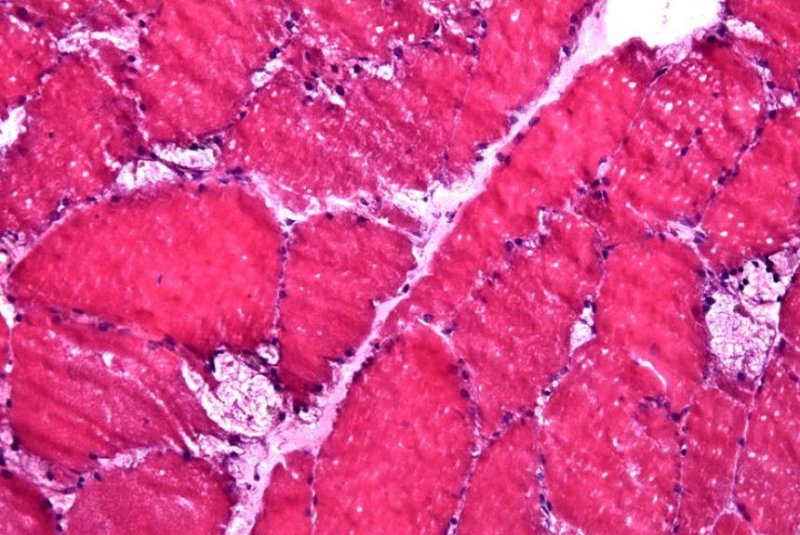In Pompe disease, a genetic mutation prevents the production of a protein that breaks down a complex sugar called glycogen, which is stored for energy production. Photo by Jensflorian/
Wikimedia
Feb. 21 (UPI) -- The first human trial of gene therapy to treat respiratory problems in early-onset Pompe disease of children was found safe, according to health researchers in Florida.
University of Florida Health scientists conducted a successful trial of nine participants who had the incurable disease, which damages muscle and nerve cells throughout the body. Results of the treatment, which utilizes an adeno-associated virus, were published in the journal Human Gene Therapy Clinical Development.
Pompe disease affects about one of every 40,000 people worldwide, with one of three types of the disease developing sometime between a few months after birth and later in childhood. The disease is named for Dutch pathologist J. C. Pompe, who discovered the first glycogen storage disease in 1932.
In the disorder, a genetic mutation prevents the production of a protein that breaks down the complex sugar glycogen, which is stored for energy production. This buildup of excess sugar leads to heart and breathing trouble as well as muscle weakness.
For the trial, researchers used a harmless adeno-associated virus to deliver a functional copy of the affected gene to muscle cells in an afflicted participant's diaphragm in 2015.
They were assigned to two different amounts of the gene therapy, and neither group suffered an adverse reaction to the therapy. One person died from a brain hemorrhage, but it wasn't considered related to the gene therapy or part of the disease progression, the researchers reported.
Current enzyme replacement therapy requires regular intravenous infusions that can reduce symptoms and prevent long-term damage, but the treatments are expensive and don't address the neurological aspects of Pompe disease, according to Dr. Barry J. Byrne, director of the UF Powell Gene Therapy Center and a pediatrics professor at the UF College of Medicine.
It's important to restore gene function in neurons, or nerve cells, because they affect muscle cell functioning and signaling.
"That's the basis for our approach: We know the gene therapy vector -- when given systemically -- actually enters the brain and corrects neurons that have the same deficits as muscle cells in Pompe disease," Dr. Manuela Corti, a UF Health pediatrics researcher and lead author of the study, said in a release Monday.
In an earlier study, UF Health researchers found using gene delivery successful treated breathing function in five participants over one year. This study hadn't determined the safeness.
Researchers are planning a trial this summer to test the gene therapy's success by administering it intravenously.
They also want to study how long the therapy will last as a child grows. Byrne said it could last five to 10 years in school-age children, but probably less for infants unless there is later exposure to the therapy.















